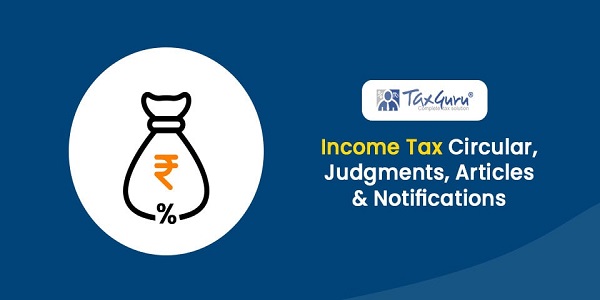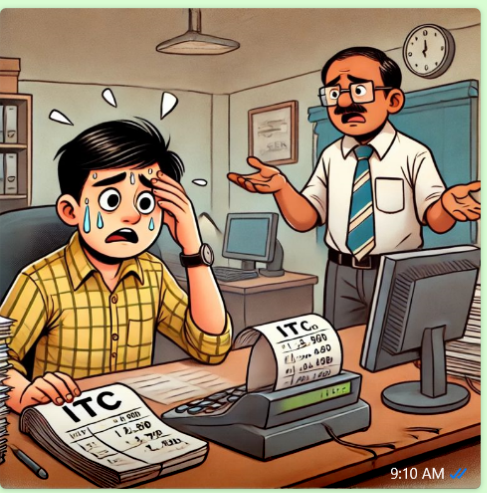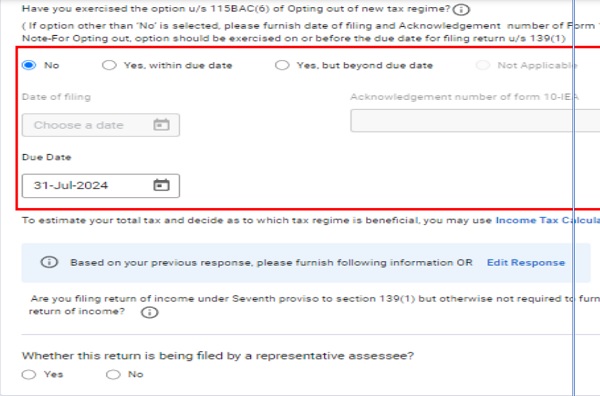Case Law Details
Raman Chaudhary Vs ACIT (ITAT Delhi)
It is evident, the assesse is an agriculturist. For purchasing some agricultural land jointly, the assessee had availed cash loan from other agriculturists. It is a fact on record that the genuineness of the loan availed by the assessee has been accepted by the departmental authorities. Of course, there is no denial of the fact that the assesse has availed the loan in cash. The issue arising for consideration is, whether there is violation of section 269SS of the Act while availing cash loan. On a reading of second proviso to section 269SS of the Act, it is very much clear that the said provision excludes cash loan availed by a person, if the person borrowing and person lending, both are having agricultural income and do not have any other income chargeable to tax under the Act.
In the facts of the present appeal, undoubtedly, both the assessee and the lenders are having agricultural income. In fact, the departmental authorities have also accepted this factual position. The second condition of the second proviso to section 269SS, which requires to be fulfilled is both the assesse and lenders should not have any other income chargeable to tax under the Act. Assessee’s contention, in this regard, has been rejected by the Assessing Officer and learned Commissioner (Appeals) on the ground that the assessee had business income. However, the moot question which arises is, whether the assessee had any other income chargeable to tax under the Act. The quantum of other income offered by the assessee is an amount of Rs.1,52,200/-. There is no dispute that the quantum of other income is below the taxable income limit. Therefore, on a plain interpretation of the expression “chargeable to tax under this Act”, it can be said that the assessee had no other income which is chargeable to tax under the Act. Assessee’s claim that the lenders did not have any other income chargeable to tax has not been rebutted by revenue.
Thus, in our considered opinion, assessee’s case would be covered under the exceptions provided in the second proviso to section 269SS. Hence, the provision of section 269SS would not be applicable.
FULL TEXT OF THE ORDER OF ITAT DELHI
Captioned appeal has been filed by the assessee challenging the order dated 13.03.2020 passed by learned Commissioner of Income Tax (Appeals), Karnal, confirming the penalty imposed of Rs.12,40,000/- under section 271D of the Income-tax Act, 1961 (for short ‘the Act’) for the assessment year 2010-11.
2. Briefly the facts are, the assessee is a resident individual. For the impugned assessment year, the assessee did not file any return of income under section 139(1) of the Act on the ground that except agricultural income, he had no other income chargeable to tax under the Act. Subsequently, the Assessing Officer reopened the assessment under section 147 of the Act on the basis of information received that during the year under consideration, the assessee, jointly with his mother and father, had purchased agricultural land for a consideration of Rs.1,32,07,200/-, wherein, assessee’s investment was to the tune of Rs.30,65,957/-. In response to the notice issued under section 148 of the Act, the assessee filed his return of income declaring income of Rs.1,52,200/- and agricultural income of Rs.1,00,000/-. In course of assessment proceeding, the Assessing Officer called upon the assessee to explain the source of investment of Rs.30,65,957/- for purchase of agricultural land. In response, the assessee submitted that he had availed loan from various persons who are having sufficient agricultural income to advance the loan. In support of his claim, the assessee furnished various documentary evidences, including the affidavits of the lenders.
3. After considering the submission of assessee and the evidences filed, the Assessing Officer accepted part of the loan availed as explained while treating an amount of Rs.4,40,000/- as unexplained loan. Accordingly, he added back the said amount to the income of the assessee while determining the total income at Rs.9,26,220/-. Since, the assessee had availed cash loan exceeding the threshold limit in violation of provisions contained under section 269SS of the Act, the Assessing Officer separately initiated proceeding for imposition of penalty under section 271D of the Act and ultimately passed an order imposing penalty of Rs.12,40,000/-under the said provision. Though, the assessee challenged the order imposing penalty under section 271D before learned first appellate authority, however, he was unsuccessful.
4. Before us, Dr. Rakesh Gupta, learned counsel appearing for the assessee submitted, while deciding the quantum appeal of the assessee, learned Commissioner (Appeals) has deleted the addition of Rs.4,40,500/- representing a part of the loan taken in cash. He submitted, as per second proviso to section 269SS of the Act, if the lender and borrower, both, are having agricultural income and neither of them has any income chargeable to tax under the Act, this provision of section 269SS of the Act would not be applicable. He submitted, neither the assessee, nor the lenders have any income chargeable to tax under the Act. Further, he submitted, in course of assessment proceeding, the Assessing Officer has not initiated proceeding for imposition of penalty under section 271D of the Act. Therefore, the order imposing penalty under section 271D of the Act is invalid. He submitted, the object of introducing section 269SS and 271D of the Act is to curb non-genuine transaction made in cash. He submitted, when the loan transactions have been accepted as genuine, even if, there is technical violation of section 269SS of the Act, no penalty under section 271D can be levied. Finally, he submitted, the assessee has offered reasonable explanation in terms with section 273B of the Act. Thus, the penalty should not have been levied. In support of his submission, he relied upon the following decisions:
1. Diwan Enterprises vs. CIT & Ors., (2000) 246 ITR 0571 (Del)
2. CIT vs. Standard Brands Ltd., (2006) 285 ITR 0295 (Del)
3. ITO vs. Amar Nath Shivraj (HUF)., (2003) 22 CCH 0120 (Agra)
4. Natco Mahashakti Mining (P) Ltd. vs. Addl. CIT., (2012) 144 TTJ 0266 (Del)
5. ITO vs. Integrated Technology Ltd., (2012) 31 CCH 0369 (Del)
6. DCIT vs. G. Sanjay Chowdary., (2014) 41 CCH 0020 (Hyd)
7. CIT vs. Vardaan Fashion., (2015) 168 TTJ 0561 (Del)
8. DCIT vs. International Softweb Ltd., (2016) 46 CCH 0178 (Del)
9. ITO & Anr. vs. Ramalingeswara Commercial Complex & Anr., (2016) 47 CCH 0052 (Vishakhapatnam)
10. ITO vs. Shakti Foundation., (2016) 48 CCH 0065 (Jaipur)
11. Sunflower Builders (P) Ltd. vs. DCIT., (1997) 61 ITD 0227 (Pune)
12. CIT vs. Ruchika Chemicals & Investment (P) Ltd., (2004) 88 TTJ 0085 (Del)
13. CIT vs. Gujarat Ambuja Proteins Ltd., (2004) 89 TTJ 0324 (Ahd)
14. CIT vs. Saurabh Enterprises., (2014) 269 CTR 0451 (All)
15. CIT vs. Worldwide Township Projects Ltd., (2014) 367 ITR 0433 (Del)
16. CIT vs. National Clothing Co., (2014) 91 CCH 0019 (Del)
17. CIT vs. Jai Laxmi Rice Mills., (2015) 379 ITR 0521 (SC)
18. Harpal Singh vs. AO., (2008) 12 DTR 0529 (Jodh)
19. CIT vs. Hissaria Bros., (2007) 211 CTR 0156, (2007) 291 ITR 0244 (Raj)
20. CIT vs. Hissaria Brothers., (2016) 386 ITR 0719 (SC)
21. CIT vs. Speedways Rubber (P) Ltd., (2010) 326 ITR 0031 (P&H)
22. CIT vs. Sunil Kumar Goel., (2009) 315 ITR 0163 (P&H)
23. DCIT vs. Vignesh Flat Housing Promoters., (2007) 105 1TD 0359 (Chennai)
5. Learned Departmental Representative strongly relied upon the observations of departmental authorities.
6. We have considered rival submissions in the light of the decisions relied upon and perused the materials on record. It is evident, the assesse is an agriculturist. For purchasing some agricultural land jointly, the assessee had availed cash loan from other agriculturists. It is a fact on record that the genuineness of the loan availed by the assessee has been accepted by the departmental authorities. Of course, there is no denial of the fact that the assesse has availed the loan in cash. The issue arising for consideration is, whether there is violation of section 269SS of the Act while availing cash loan. On a reading of second proviso to section 269SS of the Act, it is very much clear that the said provision excludes cash loan availed by a person, if the person borrowing and person lending, both are having agricultural income and do not have any other income chargeable to tax under the Act.
7. In the facts of the present appeal, undoubtedly, both the assessee and the lenders are having agricultural income. In fact, the departmental authorities have also accepted this factual position. The second condition of the second proviso to section 269SS, which requires to be fulfilled is both the assesse and lenders should not have any other income chargeable to tax under the Act. Assessee’s contention, in this regard, has been rejected by the Assessing Officer and learned Commissioner (Appeals) on the ground that the assessee had business income. However, the moot question which arises is, whether the assessee had any other income chargeable to tax under the Act. The quantum of other income offered by the assessee is an amount of Rs.1,52,200/-. There is no dispute that the quantum of other income is below the taxable income limit. Therefore, on a plain interpretation of the expression “chargeable to tax under this Act”, it can be said that the assessee had no other income which is chargeable to tax under the Act. Assessee’s claim that the lenders did not have any other income chargeable to tax has not been rebutted by revenue.
8. Thus, in our considered opinion, assessee’s case would be covered under the exceptions provided in the second proviso to section 269SS. Hence, the provision of section 269SS would not be applicable. In view of the aforesaid, we hold that the penalty imposed under section 271D of the Act is unsustainable. Accordingly, we delete it.
9. In the result, the appeal is allowed.
Order pronounced in the open court on 11th August, 2022
























